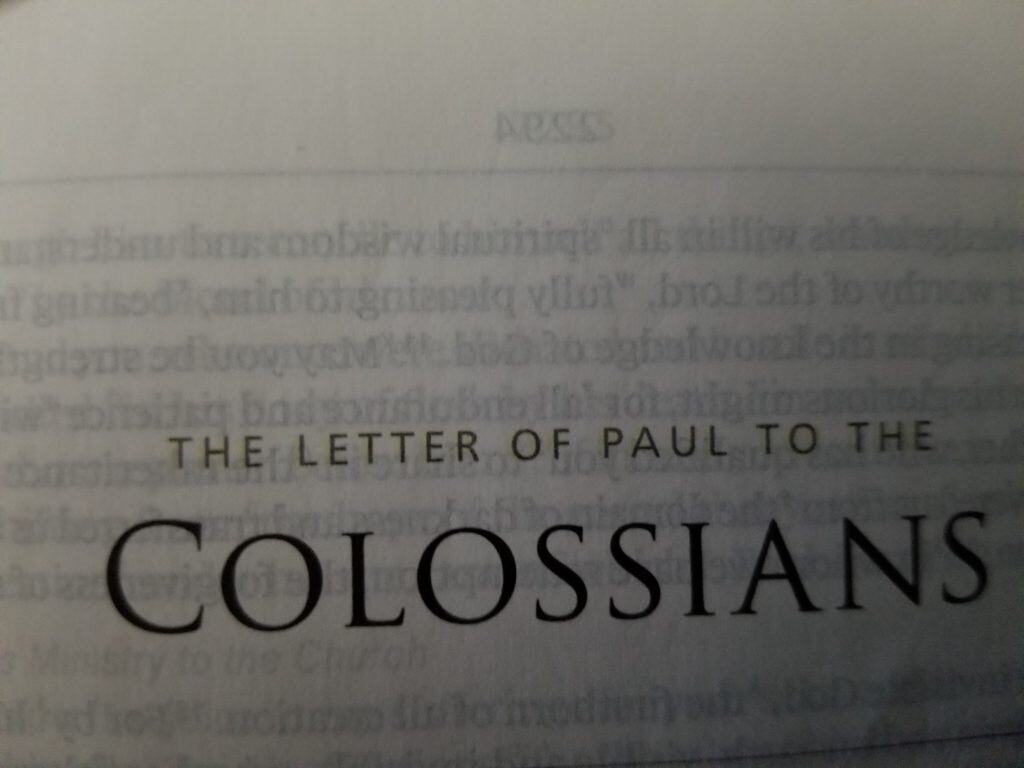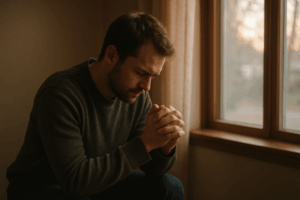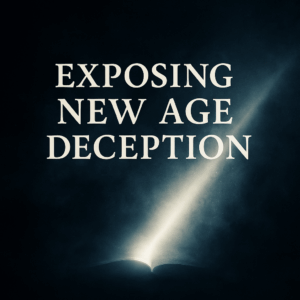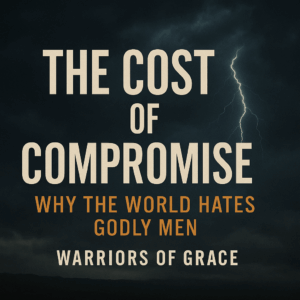⏱️ Estimated Reading Time: 8 min read
Colossians 2:11-15, “11 In him also you were circumcised with a circumcision made without hands, by putting off the body of the flesh, by the circumcision of Christ, 12 having been buried with him in baptism, in which you were also raised with him through faith in the powerful working of God, who raised him from the dead. 13 And you, who were dead in your trespasses and the uncircumcision of your flesh, God made alive together with him, having forgiven us all our trespasses, 14 by canceling the record of debt that stood against us with its legal demands. This he set aside, nailing it to the cross. 15 He disarmed the rulers and authorities sand put them to open shame, by triumphing over them in him.”
Through Jesus’ atoning sacrifice on the cross, He “set us free, body and soul, from eternal condemnation, and gain[ed] for us God’s grace, righteousness, and eternal life” (Heidelberg Catechism, A. 37). While these are wonderful and real promises, we begin to experience these not only at death but also in the present. There are further blessings, we will, experience beyond the privilege of knowing the debt of our sin has been paid entirely in and by Christ alone. While many of these blessings are explained by Colossians 2:11-15, they are also summarized in question and answer 43 of the Heidelberg Catechism.
Through Christ, our bondage to sin is ended, and we are set free, “so that the evil desires of the flesh may no longer rule us” (A. 43). The Apostle Paul emphasizes this truth particularly to his stress our union with Christ in His death and resurrection. As we see in Colossians 2:11-15, we were “buried with [Jesus] in baptism,” not baptism as a mere washing with water but the true spiritual baptism that is accomplished when through faith alone we renounce sin and trust Christ alone (Colossians 2:11-12). Through the Lord imputing our sin to Jesus, He also imputes its guilt and other consequences, which includes sinners enslavement to wickedness. Christians are so closely identified with Christ in their union with Him; it is as if they, in their Adamic state of slavery to sin, were killed and buried. Christians have no claim of ownership over our sin or over the fallenness that died in us at that point. Wickedness has no power to enslave or compel us since it was rendered null and void for all those who trust in Christ alone and walk in the Holy Spirit (Romans 6:1-14; Galatians 5:16-25).
Unlike those who are unregenerate and still in Adam, Christians can daily put sin to death and pursue holiness in all of life. John Calvin writes, “[Paul] employs the term body, by an elegant metaphor, to denote a mass, made up of all vices.” The word flesh refers to the corrupt nature, that body of sins of the flesh, associated with the old man and his deeds. The old man was crucified and buried with Jesus, and now a new holy nature and a new man was raised to serve God in freedom in Christ (Galatians 5:1).
Our old Adamic nature has been mortally wounded but refuses to stay down. Even while having a new nature in Christ, Christians must put sin to death. When tempted, we must resist, and repent when we give in to it, for we will never be perfect until we are heaven. Calvin commenting on Colossians 2:11-15 state that the “burial expresses a continued process of mortification.” While sin is powerless to control us; it is still dangerous, and must be resisted.
When the Romans hung a condemned criminal on a cross as punishment for a crime, they always affixed a titulus above the one being executed. This titulus listed the capital crimes that had been committed, explaining why the crucified individual had to pay the debt his offense incurred against Rome. In the case of Jesus, the titulus read that He claimed to be “King of the Jews”; thus, the Romans crucified Jesus because they believed Him to be seditiously claiming for Himself an authority that, in their view, rightly belonged to the Caesar (John 19:16-22).
As Paul unfolds the cosmic significance of that dark day on Golgotha, he, in Colossians 2:11-15, alludes to the how the Father affixed to the cross when His Son bore the sins of the world, thus facing the wrath of God. On the cross, the covenant Lord took “the record of debt that stood against us with its legal demands” and set it aside, “nailing it to the cross” (Colossians 2:14). Paul is speaking of how all the children of Adam have signed off on. Every single one of us came into this world under an obligation to obey God entirely, whether you and I grew up hearing the Word of God or knew what the Almighty required of us. After all, we are made in His image, and none of us has paid this debt (Romans 1:1-3:20). We have all failed to obey God perfectly, which is why we must pay for our evil through suffering eternal death. Thankfully, the Father has shown unfathomable love in allowing another to satisfy the debt for His people. Jesus took our debt and nailed our IOU over Jesus’ death, showing how His death forever satisfied our debt. While we were once slaves to our sinful nature, now we have been brought to life by Christ, free to love and obey Christ whole-heartedly (Colossians 2:13). Jesus did everything that had to be done to win the day and secured our pardon in his finished work in His death, burial, and resurrection.
The Westminster Confession of Faith 11.3 highlights the above point this way: “Christ, by His obedience and death, did fully discharge the debt of all those that are thus justified, and did make a proper, real, and full satisfaction to His Father’s justice in their behalf.” You see, God no longer requires anyone to repay that IOU for His sacrifice forever satisfies payment for our sins, so now we are freed from trying to earn our salvation.
The Lord regards His people no longer as guilty since they have union with Him. This does not mean He overlooks our sin, for He judged it His Son, whose spotless righteousness is now credited to our account. Now, instead of living for ourselves, we are to live to Christ, walking in the freedom, He has purchased for us. And we don’t do this from a place of merit, but instead, out of gratitude walking in obedience motivated by the love of God, endeavoring to please the Lord because of the great love, He has shown us while we were yet sinners.
Despite the horrific details of the death Jesus died, Paul sees the cross, as God disarming the powers, even stripping them naked there, triumphing over them, and holding them to public contempt. Furthermore, he sees the end to his hated enemy, Satan once for all in the death of Christ. After all, death did not have the final say, God raised His Son from the dead, proving He is sovereign over all and evil does not get the last word (Ephesians 1:20-22; 1 John 3:8).
The ancient Colossians, like others of the day, had a past in paganism that knew nothing but fear of how evil, invisible beings could harm them. Teachers who promised protection from these beings through special rites and secret teachings were a dime a dozen, and even Christian converts at this time of history could be tempted to look to these heretics for help. But as Paul says in Colossians 2:15, Jesus’ victory is sufficient to crush the Serpent and his minions. Now nothing more is needed for the salvation of sinners than the finished work of Christ alone.
John Calvin says that the demons “are disarmed, so that they cannot bring forward anything against us, the attestation of our guilt being itself destroyed.” Satan and his demonic horde may accuse God’s people they are guilty, but they cannot rightly do so, nor do they possess the power to separate God’s people from Christ (Romans 8:35-39). Jesus’ victory over death means that while demons may be active, they are mortally wounded, and God’s people do not need to fear even their best efforts, since, they share in Jesus’ victory and sinless life. This is what makes Paul’s words in Romans 8:1 all the more amazing, “There is therefore now no condemnation for those who are in Christ Jesus.” In Christ alone, Christians are fully loved, forgiven, adopted, given a new identity, and clothed in the perfect righteousness of Christ alone. Not only should that lead Christians to live Christian lives of gratitude to God for His grace, but it should cause them to daily put their sin to death and adorn the glory of the gospel in the present before a watching world. After all, we have a message to proclaim of a King in Jesus whose ransom provides the fount of the forgiveness of sins in His death and new life through the resurrection. Now let us, as God’s people, proclaim the glory of the righteousness of God through Christ alone to a world that desperately needs it.
Dead and Buried with Christ, Copyright (2021), Ligonier Ministries.



